In my personal and clinical experience, people who have OCD are likely to experience depression, adopt a negative outlook on the future, and/or take a dim view of people and the world. Which isn’t surprising to anyone who has OCD and has had to deal with its constant stream of negativity. And the news doesn’t help the situation either, as I’ve written about previously, as there are enough conflicts and problems covered each day to darken anyone’s worldview whether you have OCD or not.
Therefore, as part of maintenance for my own OCD recovery, I try to read widely with an eye to gaining new perspectives that just might disprove my OCD’s jaded worldview. In this post, I share three books I’ve enjoyed and recommend—even though they have nothing to do with OCD—to help you feel more empowered, hopeful, and optimistic. At the end of the post, you’ll also learn how you can find out more about your own primal world beliefs and how they might change over time.
The Year of the Horses: A Memoir
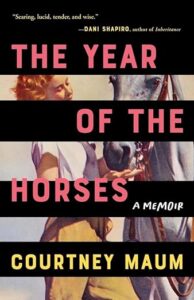 The Year of the Horses is a masterpiece of a memoir chronicling Courtney Maum’s brave journey to triumph over depression. It’s compelling not only because the author is a skilled storyteller, but also because she paints a vulnerable and relatable portrait of how depression can affect us and our families throughout our day-to-day lives.
The Year of the Horses is a masterpiece of a memoir chronicling Courtney Maum’s brave journey to triumph over depression. It’s compelling not only because the author is a skilled storyteller, but also because she paints a vulnerable and relatable portrait of how depression can affect us and our families throughout our day-to-day lives.
She also provides an inspiring example of how facing fear can help us break free. Attempting to pull herself out of depression’s grips, Maum decides to go back to a childhood joy, one she hasn’t participated in in nearly thirty years: horseback riding. As she builds her confidence, she enters the world of one of the most exhilarating horse sports—and one of the most dangerous—reconnecting with her passion for horses and ultimately finding a gateway back to herself.
Disorders like depression and OCD can have wide-ranging impacts, and Maum’s story illustrates that our recovery efforts sometimes need to be just as extensive, including:
- Pursuing your passions, even if you’re unsure about your abilities (you won’t know if you don’t try), even if it seems you’re not good (no one is when they start), and even if you’re scared (because as we know from exposure and response response prevention therapy for OCD, facing your fears helps you go toward meaning in your life).
- Changing your perspective about those around you, instead of trying to change the people themselves (i.e. learning to let go).
- Allowing the animals in your life to teach you the wisdom they have to offer. As I share in my memoir, Is Fred in the Refrigerator? Taming OCD and Reclaiming My Life, I learned Shoulders Back!, my most powerful tool for combatting my OCD, from my horse Lee.
I hope you’ll pick up a copy of The Year of the Horses for a new and empowering perspective on healing depression and reconnecting with our true selves.
Humankind: A Hopeful History
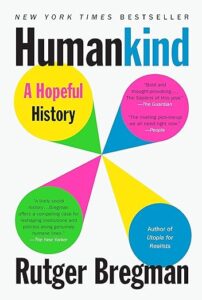 My OCD thinks humans are awful: always out for themselves and taking advantage wherever and whenever they can. It’s not surprising that this is OCD’s viewpoint, as it thinks I’m awful, too, so why would the rest of humanity be any different? And from all the people with OCD I’ve talked and worked with over the years, I’m guessing yours might think something similar.
My OCD thinks humans are awful: always out for themselves and taking advantage wherever and whenever they can. It’s not surprising that this is OCD’s viewpoint, as it thinks I’m awful, too, so why would the rest of humanity be any different? And from all the people with OCD I’ve talked and worked with over the years, I’m guessing yours might think something similar.
But as usual, OCD is wrong.
If you’d like proof, read Humankind: A Hopeful History. The premise of the book, written by Rutger Bregman, is that humans are pretty decent. Now you can probably come up with a half dozen examples of humans being pretty crappy, but that’s ok, because Bregman covers many of these examples and explains why they’re the exception, not the rule.
I finished this book three years ago firmly convinced that humans are good, and it’s a conviction I will continue to hold because 1) Bregman’s arguments were incredibly persuasive and 2) holding a viewpoint that is both more accurate than and contradictory to the one held by my OCD makes my recovery even stronger.
The Future Normal
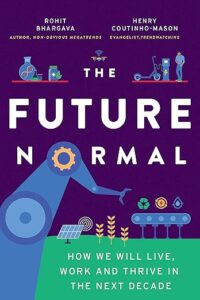 Even if you think humanity is good, sometimes when you hear about all the problems we’re facing it can seem as if we’re doomed. The Future Normal: How We Will Live, Work, and Thrive in the Next Decade, however, illustrates all the ways our future could be better than the lives we currently live. Now that’s a message we need to hear!
Even if you think humanity is good, sometimes when you hear about all the problems we’re facing it can seem as if we’re doomed. The Future Normal: How We Will Live, Work, and Thrive in the Next Decade, however, illustrates all the ways our future could be better than the lives we currently live. Now that’s a message we need to hear!
The authors, Rohit Bhargava and Henry Coutinho-Mason, call the book “a handbook for visionaries.” In it, you’ll find thirty short chapters covering topics from the authentication of videos and other media so we’ll know what we’re seeing is real to the concept of zero waste, where products and their packaging are designed to minimize or eliminate what ends up in a landfill. And some of these innovations are available now! I learned about the ZeroWasteStore.com in The Future Normal and have now switched many of my daily essentials to their zero waste products, including toothbrushes, dental floss, shampoo and conditioner, lip balm, mascara, and more.
My switch to ZeroWasteStore.com products illustrates the authors’ point: that sooner than later, these things that seem futuristic will become the everyday normal, and in the process, they’ll solve many of the problems we face today. This book’s focus on the people, companies, and communities who are tackling today’s biggest challenges one innovative idea at a time is a hopeful take on tomorrow that we all need.
What sort of world do you think this is?
Want to know more about your beliefs about the world, also known as primal world beliefs? Watch the video below, and then take one of UPenn’s three scientifically-validated surveys that measure your primal world beliefs. What might also be fun is to take one of the surveys before reading any of the books above and then take it after and see if your beliefs have changed!
In my memoir, I share that one of my and my OCD’s main views of the world was that it was a very dangerous place. I took the 99-question survey last year, and I’m pleased to report that my results showed that my primal world beliefs are now quite positive. I share this to say that it’s possible to have OCD and also to adopt an entirely new, optimistic and hopeful perspective on life and the world that supports both your recovery and the life you want to live. I hope the books above are a good jump-start to helping you do just that!
Learn more about taming OCD
To learn more about how Lee taught me my most powerful OCD-taming tool, Shoulders Back, read or listen to Chapter 16 in Is Fred in the Refrigerator? Taming OCD and Reclaiming My Life. Click here to purchase a copy.
Sign up for my Shoulders Back! newsletter to receive OCD-taming tips & resources, including notifications of new blog posts, delivered every month to your inbox.
My blogs are not a replacement for therapy, and I encourage all readers who have obsessive compulsive disorder to find a competent ERP therapist. See the IOCDF treatment provider database for a provider near you. And never give up hope, because you can tame OCD and reclaim your life!


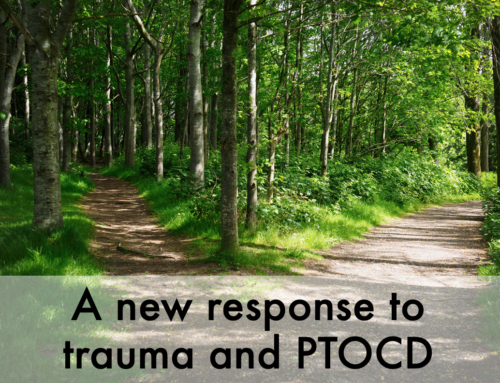
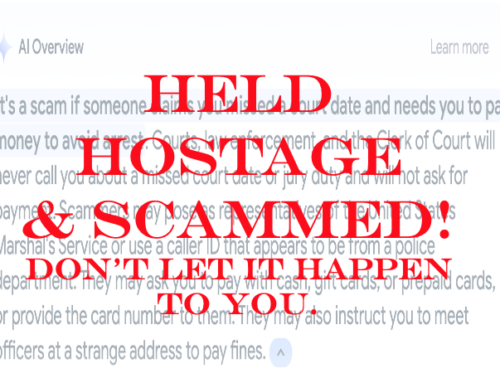
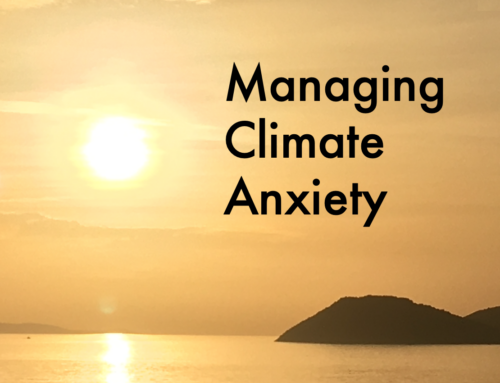


Leave A Comment